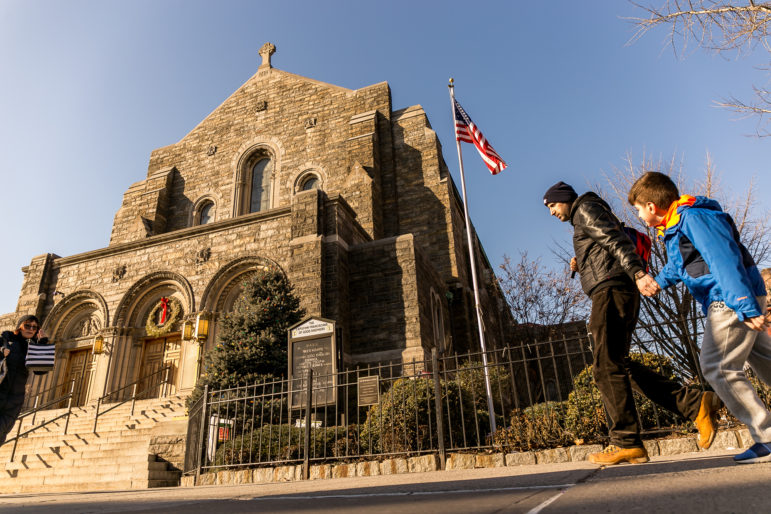“Many faith-based institutions are stewards of historically significant sites that contribute to New York’s collective cultural heritage. The push towards developing these sites into apartment buildings…poses a threat to preserving this heritage.”

Adi Talwar
With New York facing a housing crisis, innovative solutions are undoubtedly necessary. However, not all solutions are created equal, and some carry unintended consequences that could create more problems than they aim to solve. The Faith-Based Affordable Housing Act serves as a prime example. While its goal is to leverage faith-based institutions’ underutilized land for affordable housing development, a closer examination reveals unintended consequences such as the impact on historic and cultural heritage and the commercialization of faith-based institutions.
The Cathedral Church of St. John the Divine stands as a stark illustration of these unintended consequences. In 2008, the church entered into a partnership with AvalonBay Communities, leading to the creation of Avalon Morningside Park, a 20-story, 295-unit rental apartment building on its premises at West 110th Street and Morningside Drive. This was followed in 2015 by the development of The Enclave at the Cathedral, a 15-story, 430-unit rental apartment complex on the church’s property at 400 West 113th St. Despite opposition from the community, which viewed these developments as a deviation from the church’s spiritual and communal roles, the church pointed to financial constraints and infrastructural repairs as the driving force behind the decisions.
These ventures have not only reshaped the skyline but also the church’s coffers, generating approximately $5.5 million in annual revenue from the leases—$2.5 million from the AvalonBay project and $3 million from the Brodsky project. However, despite these lucrative deals, the cathedral to this day remains unfinished, lacking a spire, its south transept, and fully realized towers—even after the sale of The Enclave at the Cathedral to the Brodsky Organization for a staggering $57 million in 2019.
This juxtaposition of financial gain against historical and cultural loss prompts the question: At what point does the pursuit of fiscal solvency begin to erode the very soul of communal and cultural land? Many faith-based institutions are stewards of historically significant sites that contribute to New York’s collective cultural heritage. The push towards developing these sites into apartment buildings, as encouraged by the Faith-Based Affordable Housing Act, poses a threat to preserving this heritage. A threat that can irreversibly eliminate parts of sites that are centuries old and carry profound importance for communities.
Furthermore, by encouraging churches, temples, mosques, and synagogues to engage in the housing market, the Faith-Based Affordable Housing Act risks a fundamental transformation in the core purpose and mission of these faith-based institutions. This legislation has the potential to redefine these institutions, traditionally dedicated to spirituality and community service, to commercial ventures with a primary focus on generating profits.
Such a shift not only places the integrity of faith institutions in jeopardy but also suggests a redirection of their focus from serving the community to managing real estate. This change could lead to tensions, particularly if it is assumed that their spiritual or community objectives can compensate for or excuse their responsibilities in managing property.
So, while the Faith-Based Affordable Housing Act is crafted to address an urgent need, it’s important to consider the unintended consequences that may arise. Preserving the integrity of faith-based organizations and our cultural heritage is crucial as we work to solve the housing shortage.
Therefore, our approach should not only focus on the immediate necessity for affordable housing but also reflect on the potential long-term impact on our communities and institutions. As such, we must find a balance between development and preservation for future generations that follow.
Assemblymember Daniel O’Donnell is the chair of the Assembly Committee on Tourism, Parks, Arts, and Sports Development and represents the 69th District, an area that covers Manhattan Valley, Morningside Heights, and the Upper West Side.









One thought on “Opinion: The Hidden Consequences of the Faith-Based Affordable Housing Act”
We have a massive housing shortage, and these institutions could badly use the money that providing housing earns them. It’s an incredible win-win. We already have more than plenty in the way of protections for any historically significant structures without needing to resort to restricting the housing supply.